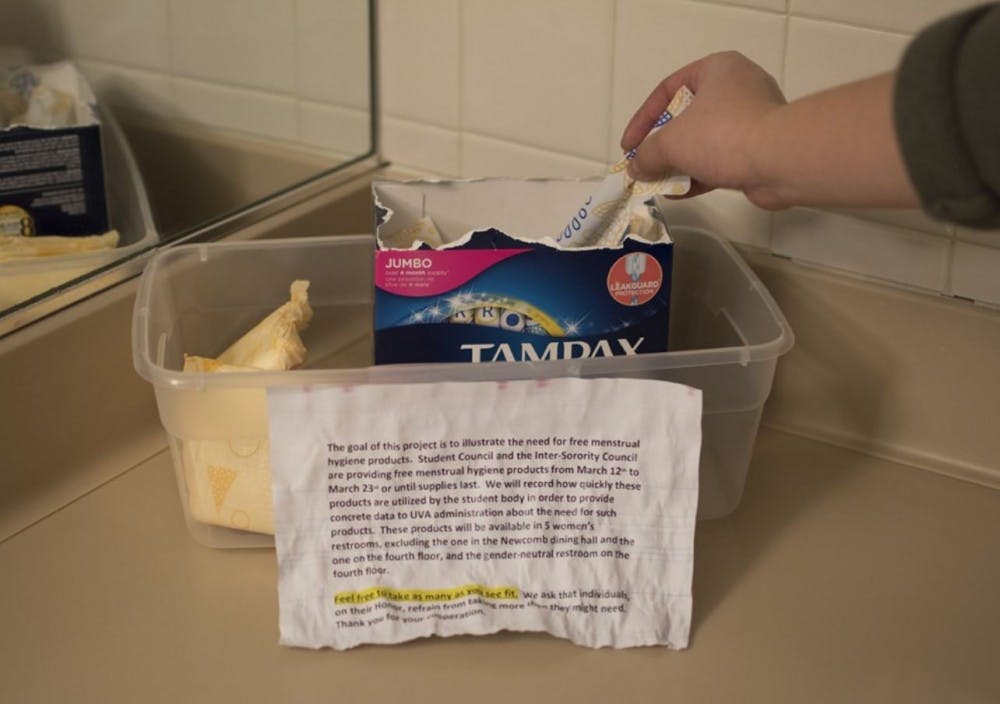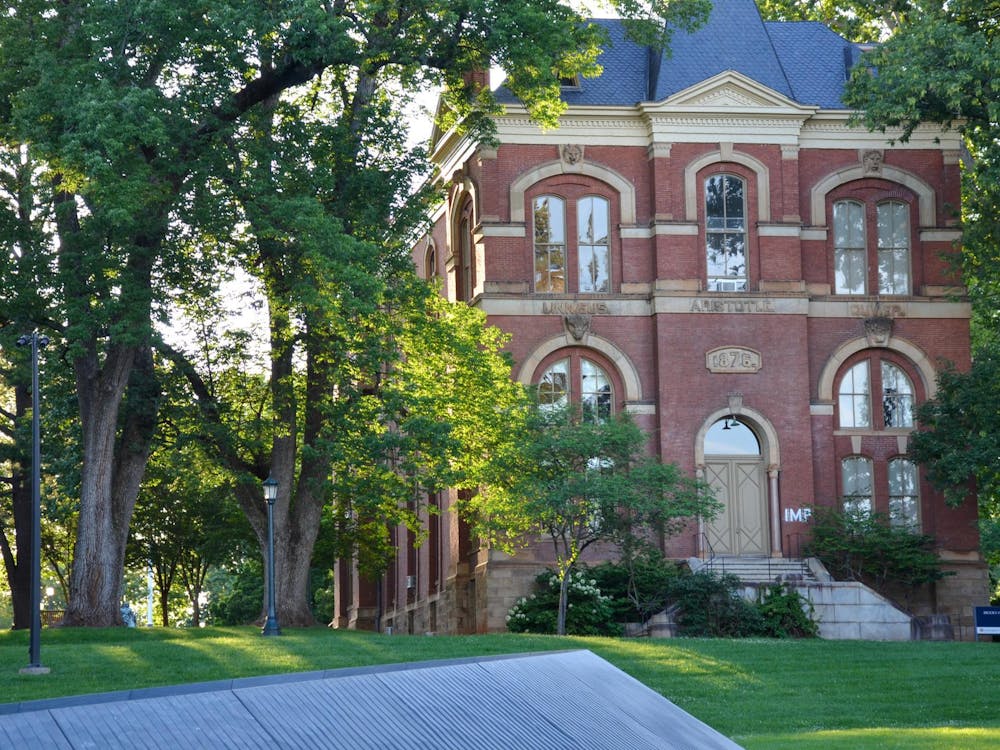Alex Cintron, a fourth-year College student and Student Council president, announced during Tuesday’s Student Council General Body meeting that the University’s Office of Facilities Management will install and stock machines that dispense free pads and tampons in women’s restrooms around Grounds.
This development is the culmination of months of Student Council-run trial projects, which has involved placing free menstrual hygiene products in women’s restrooms in Newcomb Hall, Madison House and libraries around Grounds. The projects were intended to demonstrate demand for this program to the University administration in the hope that Facilities Management would begin to provide funding for the initiative and that the initiative would be made permanent throughout Grounds.
The first seed project occurred last spring when Student Council partnered with the Inter-Sorority Council to supply free menstrual hygiene products in several bathrooms in Newcomb. Data collected by the organizations showed that the products ran out within a matter of days.
Cheryl Gomez, the director of University Facilities Management, confirmed in an email to The Cavalier Daily that free pads and tampons will ultimately be available at 1515 University Avenue, Newcomb, Nau Hall, Gibson Hall and Commons. Dispensers have already been installed and stocked in Gibson, Newcomb and 1515, and dispensers in the buildings along South Lawn are expected to be stocked by the end of the month.
Gomez added that the total up-front cost to place the dispensers in the designated women’s restrooms is less than $7,200. The program is being funded through a small surplus in a custodial budget. A continued source of funding has yet to be identified if the program is made fully permanent.
Last spring, Cintron made subsidized menstrual hygiene products a component of his campaign platform. Cintron said in an interview with The Cavalier Daily that the success of this program was a sign that other major initiatives are possible.
“The University has finite resources, but they're not so finite to the point where you can't accomplish anything,” Cintron said. “I think at the end of the day, the fact that we were able to do this in what I think in the long term sense was a very short amount of time … is an indication of like really any major platform initiatives are possible.”
The University is not the only Virginia school pursuing free menstrual hygiene initiatives. James Madison University recently engaged in a “Free the Tampon” campaign. The project began with a bill of opinion signed by over 2,000 JMU students and culminated in the senior administration approving it. Today, menstrual hygiene products can be found both in women’s and gender-inclusive bathrooms around JMU.
JMU modeled their own program on Brown University, which created a policy in September of 2016 that provided free pads and tampons in all non-residential bathrooms on campus.
Ellie Brasacchio, a third-year College student and incoming Student Council president, was one of the original organizers of the seed projects to place free menstrual hygiene products in bathrooms around Grounds. She said that under her administration, she hopes to expand the project even further to include more libraries and on-Grounds residence halls.
“I think a year from now we’d like to see even more dispensers in more bathrooms, like I said, especially in the libraries,” Brasacchio said. “That's where a lot of foot traffic comes in … Universities like JMU have it in all the bathrooms on their campus, except for the dorms. I’d like to see us go to that model in the future.”
CORRECTION: This article’s headline previously misstated that Student Council’s free menstrual hygiene initiative is now permanent. It has been updated to correctly state that the program is still in its trial period. This article also previously misstated that Facilities Management is the current funding source. It has been updated to correctly reflect funding coming from a surplus in a custodial budget.







